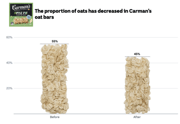
Australians struggling with rising energy bills may soon find relief as sweeping changes to how concessions are delivered take shape.
The nation’s energy referee confirmed new rules that will force retailers to step up and ensure support actually reaches those who need it.
But while reforms are on the way, vulnerable households are being urged to act now rather than wait for the system to catch up.
From 1 July next year, energy retailers will be required to directly ask customers about concession eligibility when they sign up or switch contracts.
This change, confirmed by the Australian Energy Market Commission (AEMC) on Wednesday, aimed to stop pensioners, Jobseeker recipients, and veterans from missing out on support across New South Wales, South Australia, Tasmania, Queensland, and the ACT.
Currently, the burden rested on the customer to initiate the process, with companies only loosely stating that ‘government help is available’.
AEMC chair Anna Collyer said the long-term goal should go even further, calling for an automated link between Services Australia—which issues concession cards—and energy retailers.
‘An automated system would mean eligible consumers automatically receive help with their bills without having to navigate different application processes across jurisdictions.’
Ms Collyer added that those holding a concession card should take steps now, rather than waiting until the July deadline.
The reforms were part of a package requested by Energy Minister Chris Bowen, who also pushed for caps on how often electricity prices could rise and greater transparency when customers were eligible for cheaper plans.
‘We’re making sure concession holders don’t miss out.’
‘Retailers will now have to clearly tell people what discounts they’re entitled to, so vulnerable households see every dollar of support they deserve.
‘We’re also investing in long-term solutions to bring down power bills—like cheaper home batteries, community batteries, solar for social housing, and energy efficiency upgrades for homes across the country.’
Other protections included banning late fees for concession card holders, while ensuring fees for other customers were ‘reasonable’.
The announcement came as households felt fresh pressure from energy bills, with the expiry of state rebates lifting headline inflation in August from 2.8 per cent to three per cent.
Reserve Bank assistant governor Sarah Hunter told a parliamentary committee that the increase was already factored into forecasts.
‘Well, it’s not a risk in the inflation forecast because we know it’s happening and therefore we can put it into the forecast.’
‘So it’s not an unknown if you like. It’s back to the point I made earlier, that the effect of subsidies coming off isn’t unknown.’
What This Means For You
From 1 July 2026, new rules will require energy retailers to ask customers about concession eligibility, ensuring people do not miss out on vital discounts. The reforms were aimed at pensioners, Jobseeker recipients, and veterans across five states and territories, making the process clearer and fairer.
The Australian Energy Market Commission also pushed for an automated system to stop anyone from slipping through the cracks, so support could flow more easily to those who need it most. Meanwhile, inflation edged up to three per cent as state energy rebates expired—reminding households just how much these concessions can matter when every dollar counts.
This means paying closer attention to what you’re entitled to could make a real difference to your budget in the months ahead.
While new rules promise stronger protections for those entitled to energy bill concessions, short-term pressures are still being felt as rebates wind down.
One recent shift showed how households can be left paying more almost overnight once temporary relief measures come to an end.
It’s a timely reminder that keeping track of both upcoming rule changes and current rebates can make a real difference when managing costs.
Read more: Your final $75 electricity lifeline arrives in October—just as power prices surge up to 10 per cent
Losing access to concessions during a cost-of-living crisis could mean the difference between keeping the lights on or going without—should support like this be automatic for every eligible Australian?







